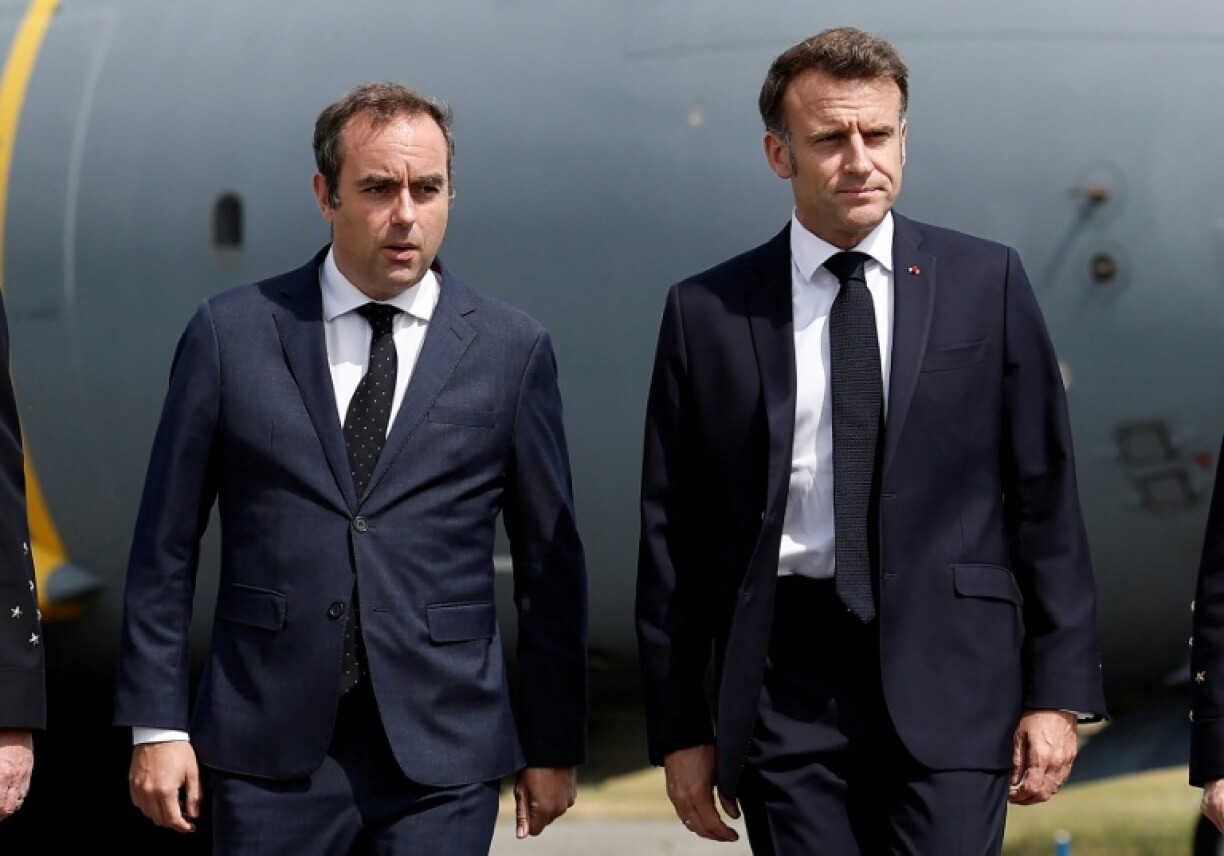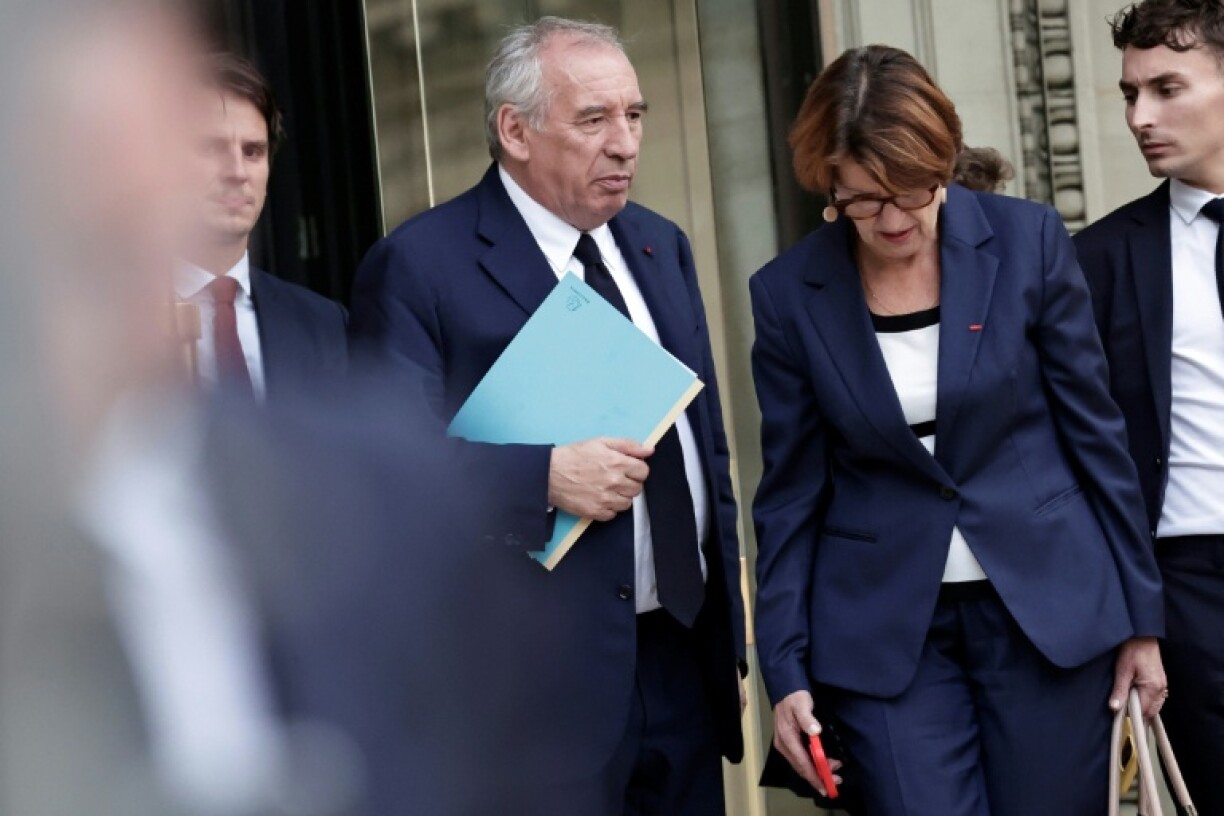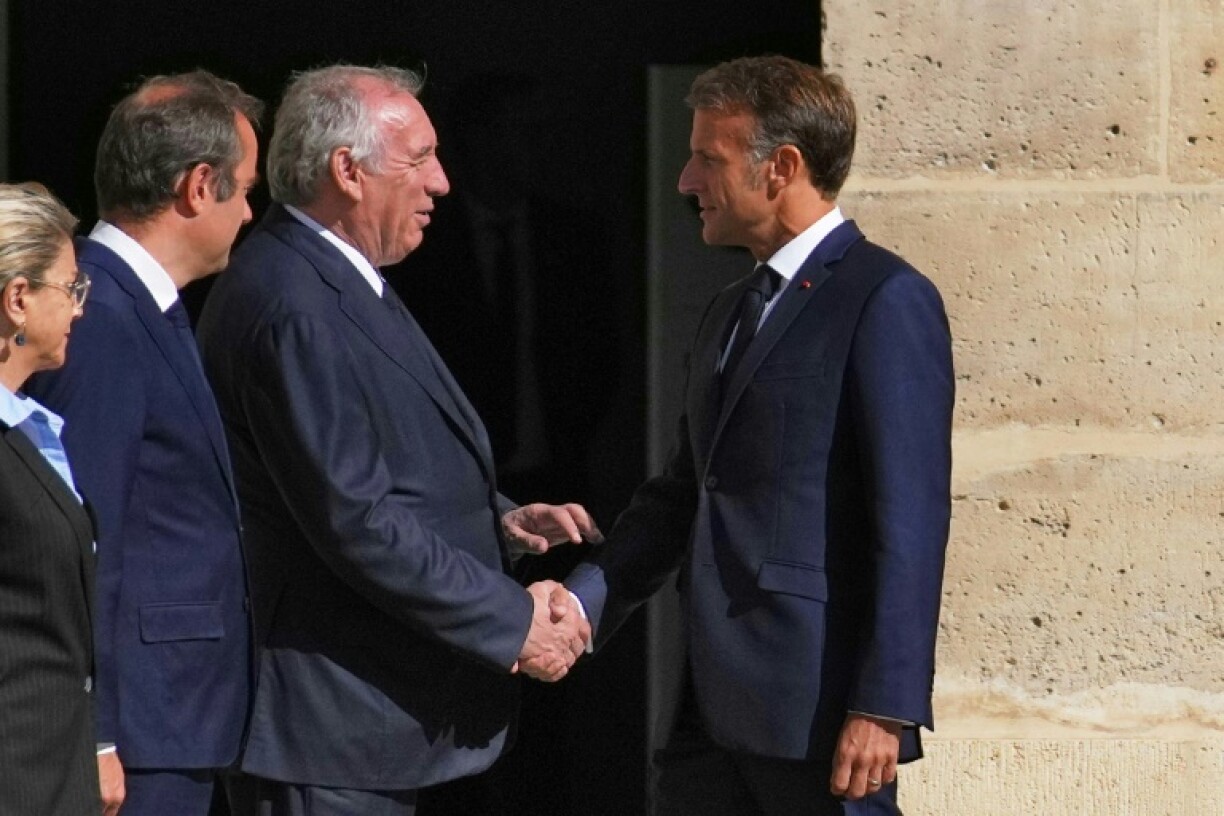
French President Emmanuel Macron on Tuesday named his defence minister and close ally Sebastien Lecornu as the new prime minister to resolve a deepening political crisis as protests loom in the coming days.
In choosing Lecornu, 39, to replace Francois Bayrou as the seventh premier of his mandate, Macron has plumped for one of his closest allies rather than seeking to broaden the appeal of the government across the political spectrum.
Macron has told Lecornu “to consult the political forces represented in parliament with a view to adopting a budget for the nation and making the agreements essential for the decisions of the coming months”, the president’s office announced.
In response, Lecornu thanked Macron for his trust, and hailed Bayrou “for the courage he showed in defending his convictions to the very end”.
“The President of the Republic has entrusted me with the task of building a government with a clear direction: the defence of our independence and power, the service of the French people, and political and institutional stability for the unity of the country,” the incoming premier said.
Bayrou, who survived just nine months in office, submitted his resignation to Macron earlier on Tuesday after France’s parliament ousted the government in a confidence vote.
The formal handover of power between Bayrou and Lecornu is due to take place on Wednesday at midday.

The French president has in the past been notoriously slow in casting a new prime minister. But this time he has taken less than a day given the risk of financial and political instability.
“Emmanuel Macron is now in the front line to find a solution to the political crisis,” said the newspaper Liberation.
France’s borrowing costs, a measure of investor confidence, on Tuesday surged slightly higher than those for Italy, long one of Europe’s debt laggards.
“The president is convinced that (under Lecornu) an agreement between the political forces is possible, while respecting the convictions of each,” said the Elysee.
- ‘Vulnerable’ -
Bayrou had blindsided even his allies by calling a confidence vote to end a lengthy standoff over his austerity budget, which foresaw almost 44 billion euros ($52 billion) of cost savings to reduce France’s debt pile.
In the end, 364 deputies in the National Assembly voted that they had no confidence in the government, while just 194 gave it their confidence.

Bayrou was the sixth prime minister under Macron since his 2017 election, and the fifth since 2022.
His predecessor, Michel Barnier, was brought down by a no-confidence vote in December.
The crisis dates back to summer 2024 legislative elections that resulted in a hung parliament.
“Emmanuel Macron, a vulnerable president,” said the daily Le Monde.
Macron, who has been leading diplomatic efforts internationally to end Russia’s war on Ukraine, had faced one of the most critical domestic decisions of his presidency over who to appoint as premier.
Lecornu has been in his post more than three years, for most of Russia’s invasion of Ukraine, and is a staunch supporter of Kyiv.
He is seen as a discreet but highly skilled operator who, crucially for Macron, himself harbours no ambition of becoming president.
Lecornu had been tipped to take the premier job in December but in the end Bayrou reportedly strong-armed the president into giving him a chance.
- ‘Has the qualities’ -
Alongside political upheaval, France is also facing social tensions.
A left-wing collective named “Block Everything” is calling for a day of action on Wednesday and trade unions have urged workers to strike on September 18.
“I hope we can find agreements. I believe there is a possibility of building a project that satisfies what I call the national majority,” said Interior Minister Bruno Retailleau, who is also leader of the main right-wing party, The Republicans.

The 2027 presidential election meanwhile remains wide open, with analysts predicting the French far right will have its best-ever chance of winning. Macron is constitutionally barred from standing for a third term in 2027.
The hopes of the three-time presidential candidate for the far-right National Rally (RN), Marine Le Pen, depend on the outcome of an appeal hearing early next year over her conviction for a European Parliament fake jobs scam that disqualified her from standing for office.
She described Lecornu’s appointment as the “final shot of Macronism”.
The Socialist Party, which had been eyeing the prime minister’s position for itself, denounced Macron’s decision not to include them and said the president risked provoking “legitimate social anger and institutional stalemate”.
But former prime minister Edouard Philippe, who is on the centre-right, was more optimistic. Lecornu “has the qualities” to “discuss” and “find an agreement” with the other parties, he told TF1 television.